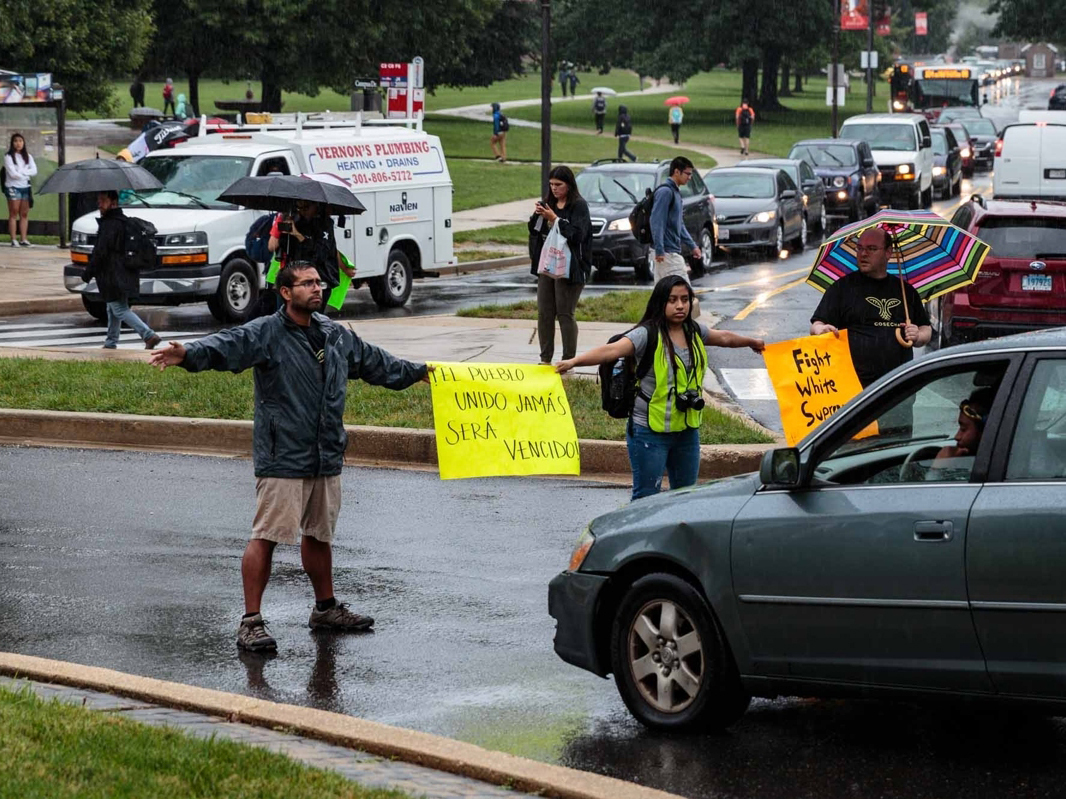
Update September 5: On Tuesday, President Trump announced, via Jeff Sessions, that the DACA program would be suspended.
“I am here today to announce that the program known as DACA that was effectuated under the Obama administration is being rescinded,” said Attorney General Jeff Sessions.
The Department of Homeland Security will cease processing new applications for the program effective Tuesday, however the administration plans to continue to renew permits for those expiring in the next six months. No one’s status will be revoked before it has expired and many applications received on Tuesday will still be processed.
The move to end the program puts Congress on a deadline to come up with a solution that will protect DACA participants who—under this new ruling—begin losing their status March 5, 2018.
If Congress does not act, nearly 300,000 people would lose their DACA status in 2018 and more than 320,000 more in 2019.
President Donald Trump is expected to dismantle a program put in place by former president Barack Obama that allows hundreds of thousands of children brought to the U.S. illegally to live and work without punishment.
The Deferred Action for Childhood Arrivals (DACA) program has been under scrutiny since its creation in 2012 by members of the GOP. For weeks, President Trump has been deciding whether to continue the program or face legal reprimand from several Republican attorney generals who deem the program unconstitutional.
A decision is expected to come as early as today—four days before the September 5 deadline set by the attorney generals. If Trump opts to terminate the program, he will let active DACA cardholders remain in the U.S. until their work permits expire, allowing him to fulfill his campaign promise to terminate Obama’s signature initiative while also keeping his inauguration pledge to “show great heart” to the young immigrants in the program.
In Baltimore, Mayor Catherine Pugh and Baltimore County Executive Kevin Kamenetz have joined more than 100 civic leaders across the country in a Cities for Action campaign calling for President Trump to continue the program until a legislative solution is found.
“In Baltimore County, we are embracing the children who came here as youngsters, grew up as Americans, and are now contributing to the American dream,” Kamenetz said in a letter to the president. “We urge the President to continue our country’s support of America’s Dreamers.”
A September 2016 report by the Migration Policy Institute recorded approximately 17,000 DACA participants in Maryland. Catalina Rodriguez-Lima, director of the Mayor’s Office of Immigrant and Multicultural Affairs (MIMA), says that there are currently 34,000 eligible DACA applicants waiting for entry to the program if it is not terminated.
“Our role in the mayor’s office is to use her platform to urge the president to continue DACA,” she said. “For us, it doesn’t only go against our most resilient professionals and students, it’s also an attack on our economy. A lot of these people have bought homes, go to school, are nurses, are lawyers, are business owners—they create jobs.”
All current participants of DACA have already been subjected to extensive background checks and pay income taxes. Without them, the economy would lose more than $460 billion from the national GDP and more than $24 billion from Social Security and Medicare contributions.
Hundreds of national business leaders—including Facebook, Apple, Google, Microsoft, and nearly 400 other companies—have also signed an open letter to Trump calling for him to preserve the program.
“Unless we act now to preserve the DACA program, all 780,000 hardworking young people will lose their ability to work legally in this country, and every one of them will be at immediate risk of deportation,” the executives wrote. “With them, we grow and create jobs. They are part of why we will continue to have a global competitive advantage.”
“Trump must end DACA,” wrote the editors of the National Review. “If we are going to amnesty an entire class of people, it should obviously be done through the democratic process and, in our view, happen only in exchange for reforms to the immigration system. DACA contravenes the elementary principle that the legislative branch ought to pass laws and the executive branch ought to enforce them.”
As the country awaits the president’s decision, Rodriguez-Lima and MIMA are encouraging local DACA cardholders to be proactive in the event that the program is suspended. She recommends applying for other immigration release programs besides DACA and consulting with legal professionals.
“My hope is that if the program is terminated, congress can come together to develop a solution for these students who were brought to this country not knowing they were undocumented,” she said. “They shouldn’t be punished but accepted. The U.S. is the only home they’ve ever known.”
